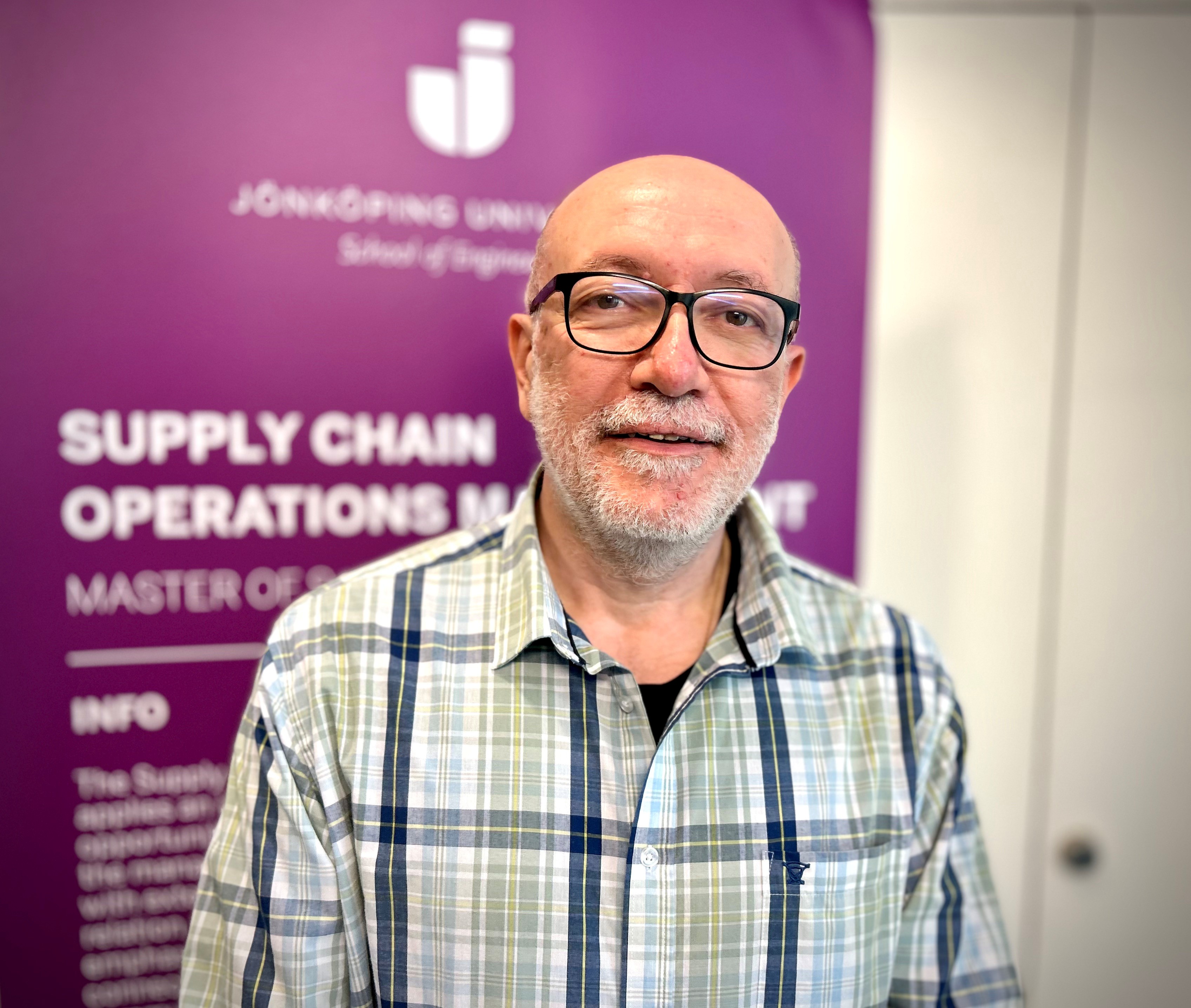
Mohamed Naim, Professor at Cardiff University
"It's about building resilience"
To help the manufacturing industry withstand unexpected disruptions, researchers at the School of Engineering are investigating how AI can support companies.
-"The ideal would be to detect disruptions before they happen," says Professor Mohamed Naim from Cardiff University, who is an advisor on the project.
An earthquake, fire or political crisis. Not to mention the American tariff chaos or the pandemic that paralyzed the world a few years ago. All are examples of events that can lead to enormous strain for manufacturing companies that are dependent on components and input goods from different suppliers at varying distances from the production itself.
A study conducted at Jönköping University recently shows that many companies are unprepared for a crisis and lack an overview of their processes and flows — for example, they do not have control over who is the subcontractor's subcontractor.
—Today it is not about a supply chain but a network of chains, and even a network of networks with layers of suppliers and customers going in different directions. These can work in expected but also unexpected ways, explains Mohamed Naim who has many years of broad experience in issues of logistics, production and business at Cardiff University and is now attached to The School of Engineering's AFAIR initiative as an advisor.
”The unknown unknowns”
The number of actors can of course mean serious vulnerability if the crisis hits.
In the DARe project, the researchers want to investigate whether the large amount of information collected in the different parts of the manufacturing process can be processed by AI to help companies get a better overview of the business flows and possible weaknesses. Perhaps also propose tools for handling the crisis based on experiences from similar events. With the help of AI, it may even be possible to detect potential problems for the business at a very early stage by monitoring the outside world and various important events in the manufacturing process. After the 9/11 attacks on the World Trade Center in New York, the expression “failure of imagination” was used by the commission that investigated the incident. The goal of the research project is to increase companies’ resilience to the “unimaginable,” explains Mohamed Naim.
—Risk management is about anticipating and assessing known risks. Resilience is about readiness for unknown risks, “the unknown unknowns” or “black swans” as they are sometimes called. The earlier you detect a disruption, the more opportunities you have. Then the opportunities diminish while the costs increase.
Trust and transparency are important
Mohamed Naim’s own journey in the world of technology over several decades at Cardiff University reflects a development that he himself has experienced in the industry. From working purely technically, different parts of science have merged and his work as a professor has also come to include business processes and organization.
—The problems we face require many different lenses and therefore we need to put them together and see the challenge as a whole. An important issue in achieving increased resilience and resistance is trust, people must dare to give up data and tell about possible disruptions. Transparency is important and a good way to increase it is to work as we do in AFAIR, with different companies — together.
We don’t know how yet, but the goal is to create preparedness for disruptions, to detect them, to respond to them and to recover from them. And I believe AI can help us.


